commentary Commentary
Commentary: The noose around Hong Kong is tightening
The growing disenchantment cannot be resolved by the right use of words, the complete annihilation of the extradition bill, or even Carrie Lam’s resignation, says Tom McGregor.
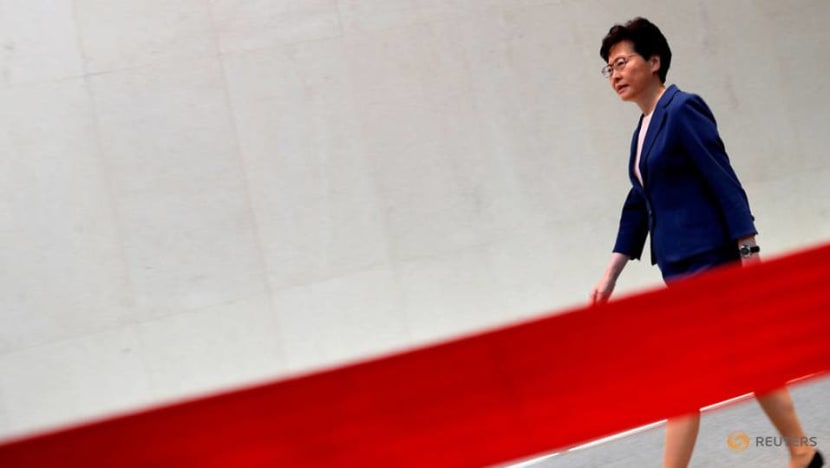
Hong Kong Chief Executive Carrie Lam walks to speaking to media over an extradition bill in Hong Kong, China July 9, 2019. REUTERS/Tyrone Siu
BEIJING: Hong Kong politics is facing a death spiral.
Although Chief Executive Carrie Lam announced on Tuesday (Jul 1) that the extradition bill is “dead”, protesters are not letting up the pressure one bit.
They vowed new rallies in rejection of Lam’s remarks on the basis that their other demands for an independent judge to head a commission of inquiry into police tactics and more were not met.
After being embroiled in huge demonstrations for more than a month, the city has come to a standstill. The political stalemate threatens to bring Hong Kong to its knees.
Observers like myself feel nothing but profound sadness for Hong Kong’s plight.
Hong Kong had long been recognised as one of the most modern, stable and cosmopolitan cities in the world, where “crazy rich Asians” live the high life on a glorious metropolitan island.
Its pole position as the gateway to China since 1997 earned it immense national pride and international regard, even as new flourishing Chinese cities have added more touchpoints between China and the world.
READ: Hong Kong protests may have crossed the point of no return, a commentary
All that changed last month after the city was rocked by a series of protests that might just continue indefinitely.
There are disputes as to whether the shocking storming of the LegCo building and the pictures of demonstrators hurling bricks at police officers are representative of how violent a turn the protests have taken.
Accounts of mothers turning up peacefully in huge numbers and protesters singing Christian hymns have also percolated through the airwaves.
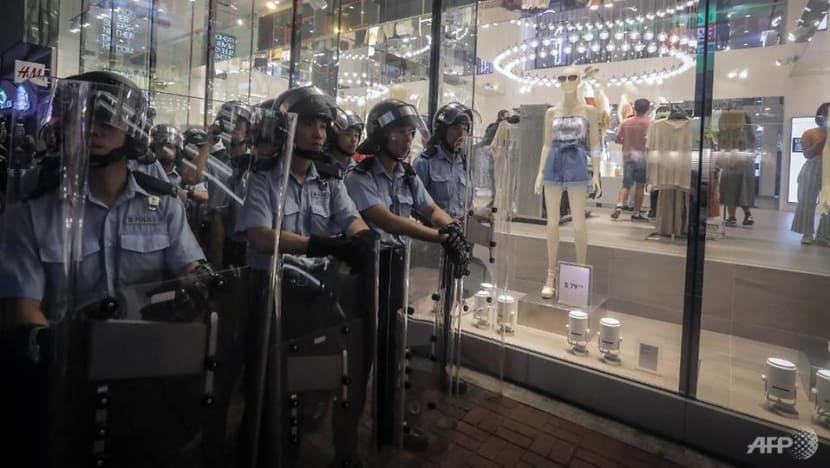
But the sum of these pictures suggest that the protesters have gained traction and reflect a growing, mass disenchantment with the Hong Kong administration that cannot be resolved by the right use of words by authorities, the complete annihilation of the extradition bill, or even Lam’s resignation.
FOREIGN PRESSURE
The actions of the protesters appear well-planned and coordinated, sparking speculation that there has been high-level foreign support.
This narrative has not been helped by United Kingdom Foreign Minister Jeremy Hunt’s unproductive comments threatening economic sanctions on China on account of the country violating the One Country, Two Systems agreement governing Hong Kong’s return to China.
Indeed, if anything else, Hong Kong has the British to thank for the current impasse.
Before governor Chris Patten handed over Hong Kong to China, his administration had enacted massive electoral reforms to allow direct elections to select part of the Legislative Council, which were incompatible with the Chinese system and unrealistic to maintain.
Those moves were abolished after 1997 but may have sown the seeds of divisiveness we bear witness to today.
READ: Chris Patten's commentary on what Carrie Lam should do next
Hong Kong authorities are now scrambling to find a solution, after the crisis has come under the international media spotlight.
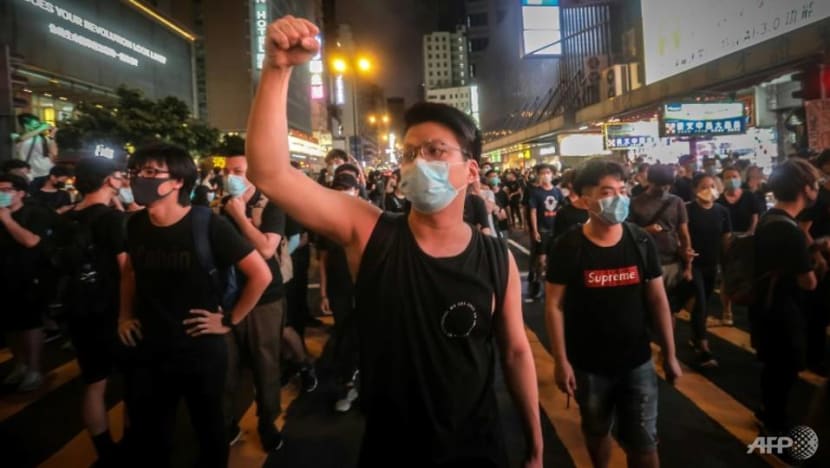
NO GROUND FOR COMPROMISE
Perhaps Carrie Lam sincerely believed if she halted the extradition bill, that would appease demonstrators. She has been sorely mistaken if so.
Her tarnished reputation has taken a beating from activist leaders who still denounce her, arguing that she has been disingenuous and is playing around with words.
READ: Carrie Lam is playing a high-risk game with Hong Kong protests, a commentary
They have seized this opportunity to make fresh demands, capitalising on what they have framed as a half-hearted effort from an untrustworthy leader who has lost her moral legitimacy to continue.
“The core of this political movement is the demand for free elections, because all governance crisis stems from political inequality,” said Joshua Wong, notable pro-democracy activist and the face of the Umbrella Movement.
As de facto leader of this mass movement fighting for self-determination, Wong stands to gain from unseating the Hong Kong administration.
His Demosisto Party, which he heads as Secretary-General, is well-poised to win any election and can probably count on the support from the 2 million protesters.
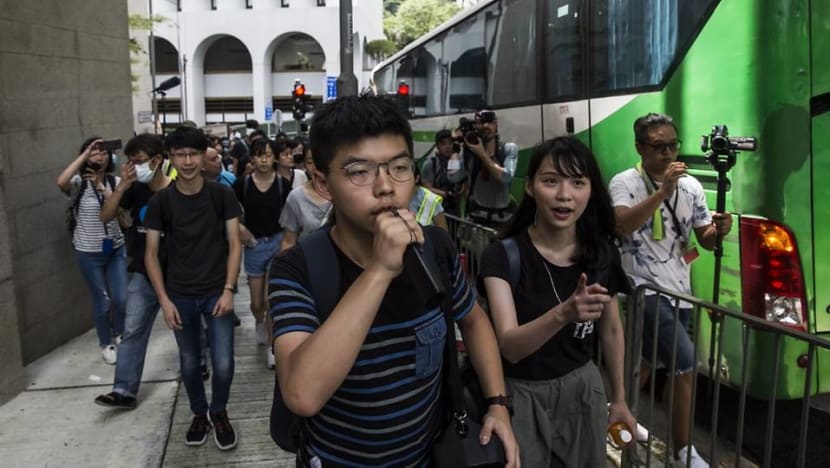
This is what the more extreme segments of protesters want – self-determination, not to kill the extradition bill, unseat Carrie Lam or demand for better governance and sweeping reforms to improve their lot. The question is whether their other compatriots protesting with them realise what they have been roped in to support.
READ: Storming of LegCo building a turning point in Hong Kong politics, a commentary
As they continue to wreak havoc on city streets, it appears evident leaders of the protests were simply using the extradition bill to incite a summer of discontent.
ONLY HONG KONGERS CAN RESTORE ORDER
Many observers have said it is a matter of time before China cracks down on Hong Kong. I don’t think the current political mess is one China is willing to kill itself over.
The country has other pressing challenges to attend to, not least the brewing trade war with the US. A clampdown will also only hurt China’s interests.
This is partially why the commander of the People’s Liberation Army garrison in Hong Kong Major-General Chen Daoxiang pledged that his troops will stay in their barracks and will not interfere in Hong Kong’s affairs.
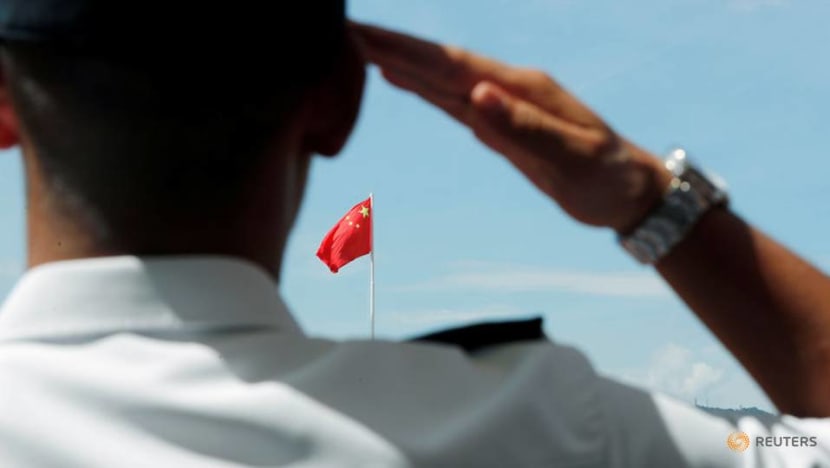
There is a saying "港人治港" (gang ren zhi gang) – which translates into Hong Kong rule by Hong Kongers. The Chinese are leaving Hong Kong to deal with its issues. The police will have to figure out how best to handle the protests in order to restore law and order.
They have been measured, erring on the side of being overly cautious and have allowed protesters to vandalise the city’s most sacred legislative sanctum. Where protesters have seen ground ceded to them physically and politically, is it any surprise they have pressed greater demands?
REGAIN GROUND
Instead of appeasing the protesters, the Carrie Lam administration must shift gears to double down on regaining popular support and trust from her people.
The protesters had gained the upper hand, correctly calculating that the backdrop of disgruntlement provided fertile ground on which to stage a protest on account of the extradition bill, in order to bolster popular support for a broader anti-government stance.
But the coalition is fundamentally fragile when most protesters have different goals.
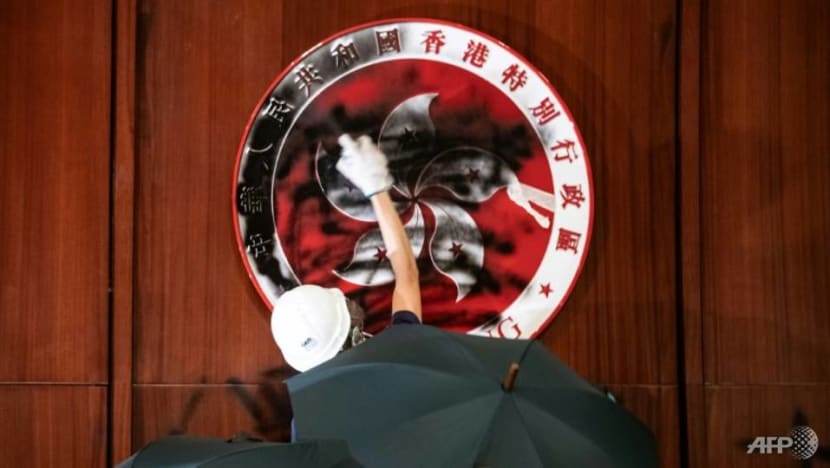
That works in Lam’s favour. Instead of focusing on them or the extradition bill, Lam now needs to concentrate attention on how to tackle larger concerns most Hong Kongers have – including employment, education and housing - that give them a stronger sense of belonging.
READ: Behind Hong Kong’s extradition bill protests – a looming divide, growing pessimism about the future, a commentary
She must reclaim her ground and act decisively now instead of ceding the public spotlight to the protesters and allowing them to poison the well.
A noose is tightening around Hong Kong’s neck. It didn’t start with the extradition bill. It won’t end with its demise.
But there’s still space for Lam to act decisively to redeem the situation.
Tom McGregor is a commentator on Asia-Pacific affairs based in Beijing.














